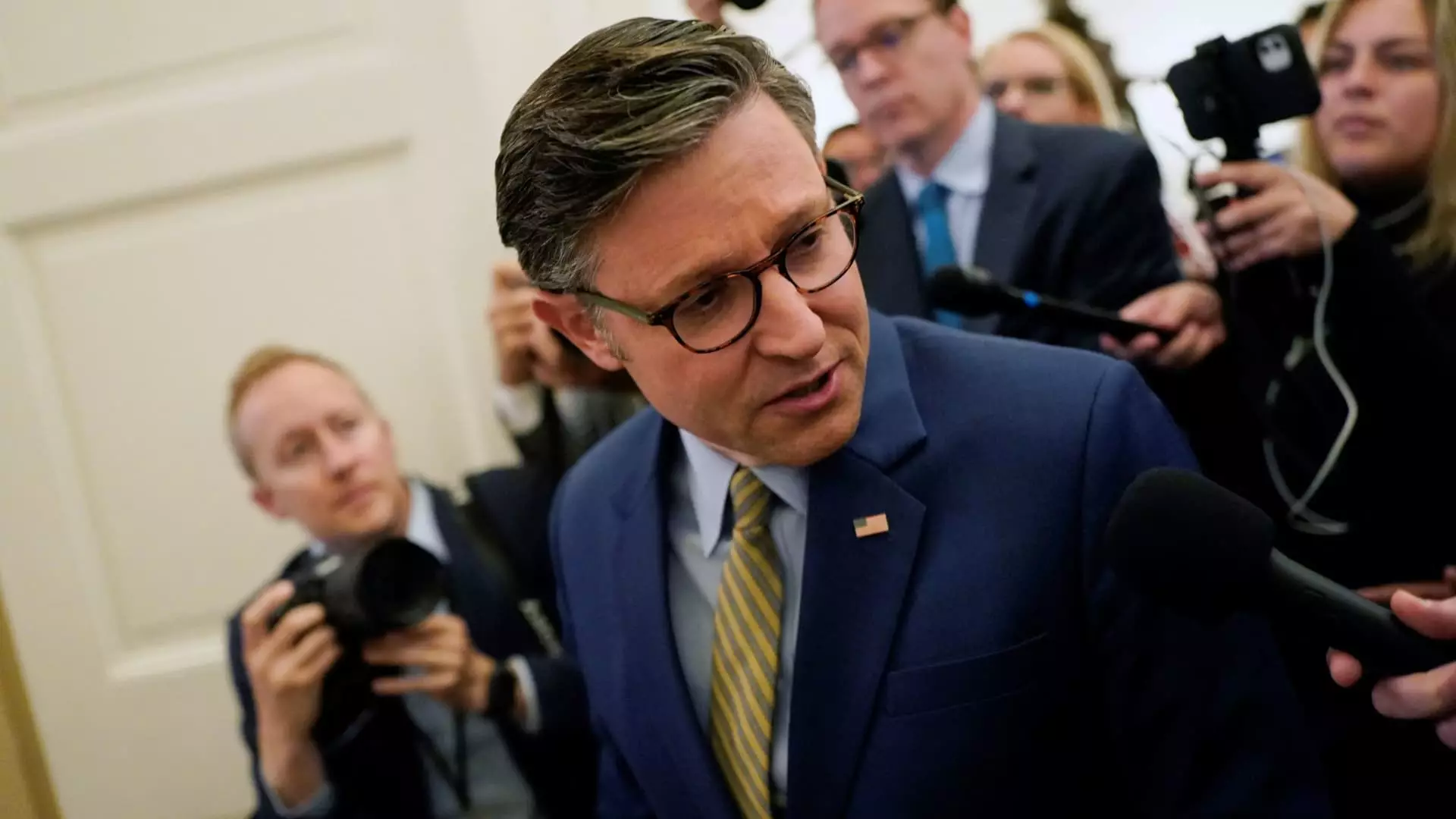The rhetoric surrounding House Speaker Mike Johnson’s recent endorsement of a sweeping legislative package evokes a sense of both excitement and trepidation. Dubbed the “big, beautiful bill,” it purports to be the most monumental spending cut in three decades, a claim that raises questions about the motivations behind such declarations. While the Speaker boasts of stimulating the economy through unprecedented tax cuts and spending cuts, an examination of the facts reveals a more complex picture fraught with potential ramifications that could jeopardize the fiscal health of the nation.
The Congressional Budget Office (CBO), an independent entity tasked with analyzing the economic implications of legislation, warned that the tax components of this massive bill could exacerbate the federal deficit by a staggering $3.8 trillion over the coming decade. It is puzzling why, in the face of such clear forecasts, Speaker Johnson would dismiss these analyses as “dramatically overstated.” This dismissal seems to reflect a broader trend in contemporary politics where convenient narratives often overshadow unflattering truths about fiscal responsibility.
The Fiscal Hawks’ Dilemma
Even among many within Johnson’s own party, skepticism looms large. Notable fiscal conservatives, like Senator Ron Johnson of Wisconsin, have expressed significant reservations about the legislation, arguing that it could lead to untenable debt levels. Their hesitance serves as a powerful reminder of the bipartisan agreement that once existed around the principles of fiscal prudence. The current wave of fiscal recklessness threatens to upend this delicate balance, favoring short-term gains over long-term economic stability.
Johnson’s adamant skepticism toward the CBO’s projections raises a crucial question: What is the actual cost of unchecked optimism? The narrative that jobs and wages will flourish merely because of the passage of this bill is overly simplistic. It fails to account for the various external factors influencing economic sustainability, such as global economic volatility and domestic investment trends. If a fiscal plan relies solely on aggressive tax cuts without adequate oversight and realistic investment strategies, the repercussions could reverberate throughout the economy, impacting citizens who are already grappling with rising costs and stagnant wages.
Calling for Sensible Solutions
The intense push to pass this legislation amidst pressure from former President Trump reveals a troubling dynamic within the Republican Party. The balancing act Speaker Johnson references, where he must hold onto his slim majority, is emblematic of the increasingly precarious state of American governance. It smacks of a reactive approach to policy-making, prioritizing speed over thorough analysis and careful consideration.
As the Senate prepares to tackle this “big, beautiful bill,” it is imperative for lawmakers to approach it with the seriousness it deserves. Amendments should not merely aim to mollify party insiders but must be grounded in fiscal reality. The willingness to make changes should not be a mere gesture but a commitment to ensuring a responsible approach to public finances that doesn’t leave future generations to grapple with the fallout of today’s decisions.
A reliance on bravado rather than candor in fiscal policy not only undermines trust but could also spell disaster for an economy trying to navigate a complex global landscape. In an era where ideological fervor often eclipses pragmatic governance, a return to disciplined economic stewardship is crucial. Whether Speaker Johnson and his fellow lawmakers will rise to the occasion remains to be seen.

Leave a Reply